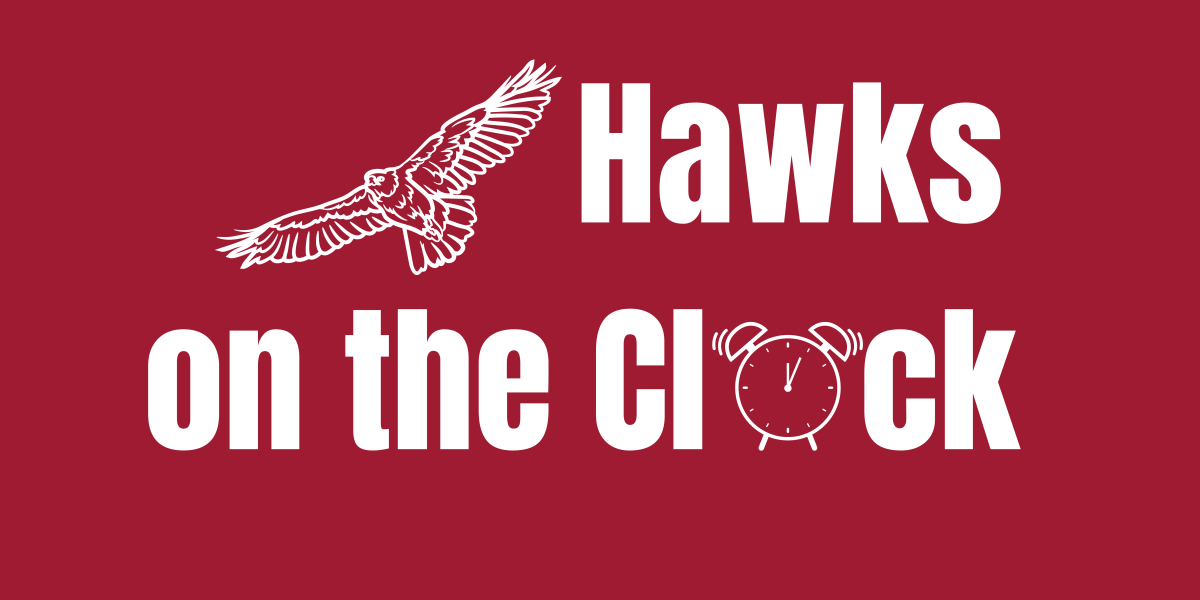The stares grew far too uncomfortable. The questions were redundant and aggravating. The weird looks were too much. I needed to stop picking my skin, but how?
I have what is known as dermatillomania, a skin-picking disorder, which is a mental health illness related to obsessive-compulsive disorder.
According to Mental Health America, dermatillomania affects between 1.4 to 5.4% of American adults.
Ever since I was a child, it was hard to sit still without fidgeting in one way or another. But, in high school, I began picking at the skin of my thumbs as a way to relieve stress or boredom.
Picking my skin is not good for my physical or mental health, though, so late last semester, I decided to try to stop. I have tried before. During my first year at St. Joe’s, at the end of winter break, with finals over, I decided it was time to stop picking at my skin once and for all. With the stress of exams behind me, it seemed like the perfect time. But then I went through my first heartbreak, and I needed my go-to coping mechanism.
Jasmine Owens, St. Joe’s assistant director of Student Outreach & Support, said self-awareness is the initial stepping stone on the road to recovery.
“Self-awareness in general is a good first step to start coping with whatever it is that you’re dealing with,” Owens said.
Just before finals last semester, I gathered my supplies: countless Band-Aids, medical tape, Aquaphor, trigger replacements — which are gadgets to use instead of resorting to skin picking — my specific one being a fidget ring, and, most importantly, a healthy mindset. These recommendations came from both my lived experiences with trying to stop, and my pediatrician.
It was a struggle. There were times when I failed and had to regain my confidence and motivation to better my physical and mental body for the next day.
Scott Sokoloski, Ph.D., director of Counseling and Psychological Services (CAPS) at St. Joe’s, said the key to stopping stressful habitual routines is to pinpoint personal triggers.
“With excoriation disorder (skin-picking), many of the same treatment options are used, but with a particular focus on identifying the triggers that can lead to the damaging behaviors,” Sokoloski wrote in response to written questions from The Hawk. “Helping students recognize and change habitual and automatic responses to stressors is the goal.”
When pondering my triggers, boredom, stress and anxiety always surface at the forefront of my mind. Thus, I knew removing this habit, cold turkey, right around finals would be an even greater challenge.
But I was up for it, especially after trying to stop for years.
The most mentally draining aspect of this entire process was seeing my proud thoughts diminish when I would pick at the skin of my thumbs after an entire day of not doing so. Recurrence is possible, though, as noted by Carissa Peckrul, a social worker for Health 360, a fully remote nonprofit organization that enforces mental health equity.
“We know that in the stages of change, relapse is normal, and sometimes there is inconsistency,” Peckrul said. “So, being gentle with yourself during those periods of inconsistency and having forms of distraction can be really helpful combating those tendencies.”
Hearing this definitely eased my mind and allowed me to shift my mental blockage back into motivation. I needed to replace my triggers with healthy coping skills. Instead of removing the skin off my thumbs, I began trying to make contact with the fingertips of each individual finger when I started feeling bored or anxious. This form of coping helped substantially, and it was a quick adjustment to make.
Peckrul said expanding your toolkit of coping skills is crucial when dealing with skin-picking, which can be classified as a form of self-harm.
“The one thing we say about self-harm behaviors is you want to build up your toolkit of coping skills,” Peckrul said. “Oftentimes, people might think just stopping ‘cold turkey’ is the best form of action. For example, someone who cuts or burns, taking away the methods to do that is the best course of action, but you really never want to take away the coping skill, which is cutting or burning or skin picking without replacing it with a new one.”
Peckrul’s comment paralleled Sokoloski’s advice. He encourages additional coping skills in replace of harmful ones.
“We also encourage emotional exploration and expression through creative techniques such as journaling, music, or art,” Sokoloski wrote.
In addition to Band-Aids and finger tapping, I also turned to music to help reduce the habit of picking my skin.
Despite the period of setbacks and failures, which I know will continue, I know not to give up. Perhaps abandoning my habit all at once was, in fact, unrealistic, but I am motivated to continue to fight. Always.









































